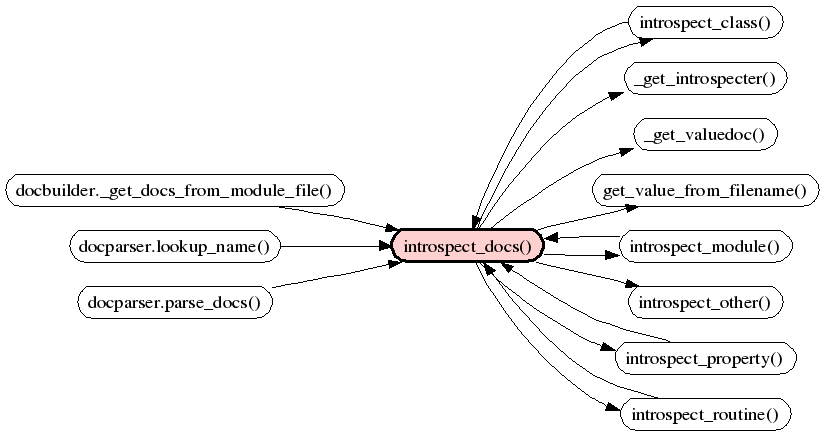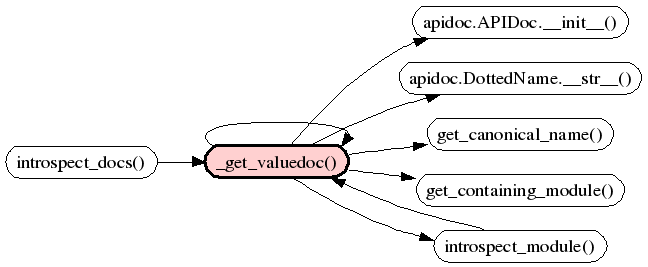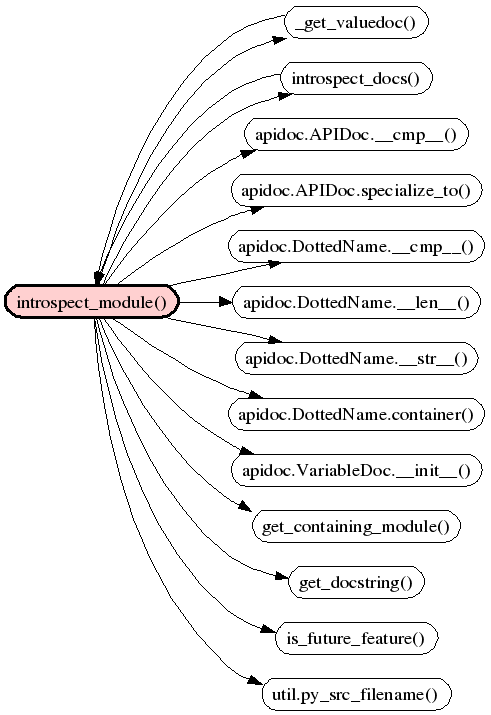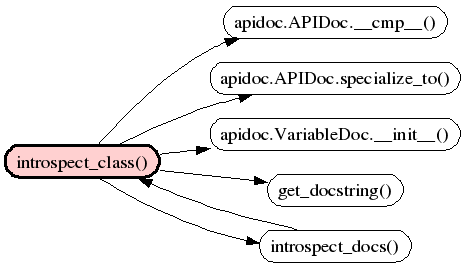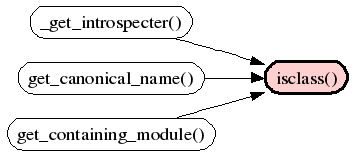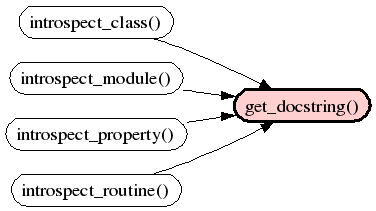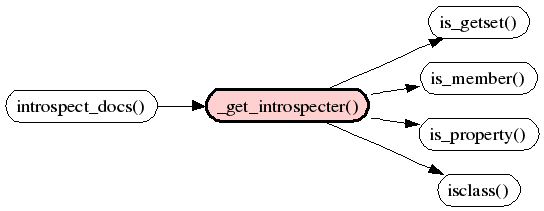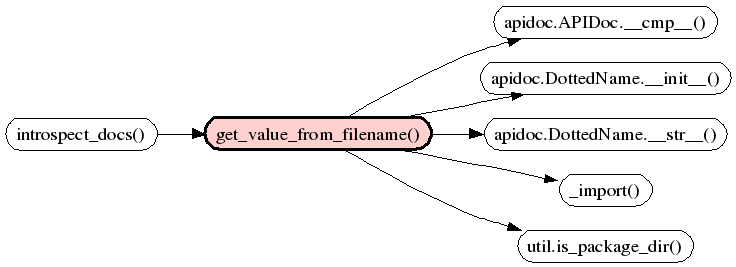| Functions |
| clear_cache() Discard any cached APIDoc values that have been
computed for introspected values. |
source code |
| introspect_docs(value=True,
name=True,
filename=True,
context=True,
is_script=True,
module_name=True) Generate the API documentation for a specified object by introspecting Python values, and return it as a ValueDoc. |
source code
call graph |
| _get_valuedoc(value) If a ValueDoc for the given value exists in the
valuedoc cache, then return it; otherwise, create a new
ValueDoc, add it to the cache, and return it. |
source code
call graph |
| introspect_module(module,
module_doc,
module_name=True,
preliminary=True) Add API documentation information about the module module to module_doc. |
source code
call graph |
| introspect_class(cls,
class_doc,
module_name=True) Add API documentation information about the class cls
to class_doc. |
source code
call graph |
| introspect_routine(routine,
routine_doc,
module_name=True) Add API documentation information about the function routine to routine_doc (specializing it to
Routine_doc). |
source code
call graph |
| introspect_property(prop,
prop_doc,
module_name=True) Add API documentation information about the property prop to prop_doc (specializing it to
PropertyDoc). |
source code
call graph |
| introspect_other(val,
val_doc,
module_name=True) Specialize val_doc to a GenericValueDoc and return
it. |
source code
call graph |
| isclass(object) Return true if the given object is a class. |
source code
call graph |
| register_class_type(typ) Add a type to the lists of types that should be treated as classes. |
source code |
| is_future_feature(object) Return True if object results from a from
__future__ import feature statement. |
source code
call graph |
unicode
| get_docstring(value,
module_name=True) Return the docstring for the given value; or None if
it does not have a docstring. |
source code
call graph |
UNKNOWN
| get_canonical_name(value) Returns: the canonical name for value, or UNKNOWN
if no canonical name can be found. |
source code
call graph |
| verify_name(value,
dotted_name) Verify the name. |
source code
call graph |
| value_repr(value) | source code |
| get_containing_module(value) Return the name of the module containing the given value, or None if the module name can't be determined. |
source code
call graph |
module
| _find_function_module(func) Returns: The module that defines the given function. |
source code
call graph |
| register_introspecter(applicability_test,
introspecter,
priority=10) Register an introspecter function. |
source code |
| _get_introspecter(value) |
source code
call graph |
| is_classmethod(v) | source code |
| is_staticmethod(v) | source code |
| is_property(v) |
source code
call graph |
| is_getset(v) |
source code
call graph |
| is_member(v) |
source code
call graph |
| get_value_from_filename(filename, context=True) |
source code
call graph |
| get_value_from_scriptname(filename) | source code |
| get_value_from_name(name,
globs=True) Given a name, return the corresponding value. |
source code |
| _lookup(module, name) | source code |
| _import(name,
filename=True) Run the given callable in a 'sandboxed' environment. |
source code
call graph |
| introspect_docstring_lineno(api_doc) Try to determine the line number on which the given item's docstring begins. |
source code |
| _is_zope_type(val) | source code |
| _is_zope_method(val) | source code |
